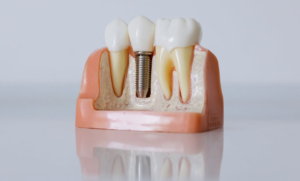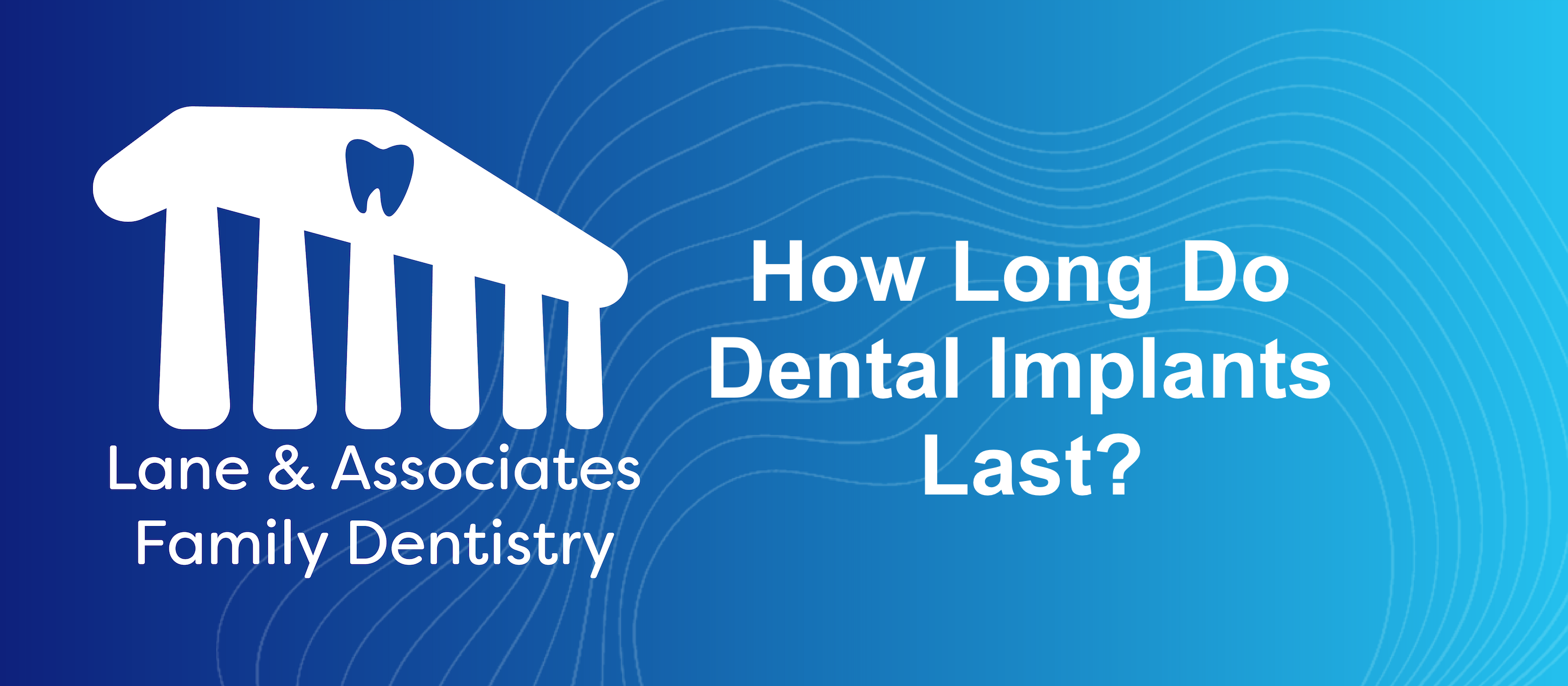Dental implants are a popular choice for those who are looking to replace missing or damaged teeth. They are durable and long-lasting, but how long do they actually last?
Dental implants can last anywhere from 10 to 20 years or even longer. That all depends on a number of factors such as your oral hygiene habits and the type of implant you get. In this article, we will explore how long you can expect your dental implants to last.
Are Dental Implants a Longterm Treatment?
Dental implants are a popular choice for restoring missing teeth. They are considered a longterm treatment option, as they can last for many years with proper care. Dental implants are surgically placed in the jawbone, where they act as a replacement for the root of a tooth. A dental implant can be used to support a single tooth, a dental bridge, or dentures.

Other treatment options for missing teeth that are comparable to dental implants include dental bridges and dentures. Dental bridges are supported by natural teeth on either side of the gap. Dentures are removable appliances that replace all of the teeth in the upper or lower jaw. While both of these options can be effective, they do not last as long as dental implants.
If you are considering a longterm treatment option for missing teeth, dental implants may be the best choice for you. Be sure to discuss all of your options with your dentist to make the best decision for your individual needs.
Can Dental Implants Last Forever?
It is possible to make your dental implants last for many, many years with proper care. By following the dentist’s instructions for oral hygiene and regular check-ups, you can keep your implants healthy and functioning well for many years.
However, eventually even the best-made implants may need to be replaced, so it’s important to keep that in mind when making your decision. Carefully weigh the pros and cons with your dentist to decide if dental implants are the best choice for you.
Even if a dental implant won’t last forever, it will be at least 15 years before you have to worry about it again after having implants done.
Do Dental Implants Need to be Replaced?
As mentioned before, dental implants can last a lifetime if they are cared for properly and if they are set properly.
There can be complications with dental implants that would cause a patient to return to the dentist, but these cases are more rare than successful implant procedures. For example, a dental implant may become infected over time and have to be removed to prevent the spread of infection.
In general, however, dental implants that are placed correctly and cared for properly do not need to be replaced. Dental Implants provide a permanent solution for tooth replacement that can last a lifetime with proper care.
What Happens to Dental Implants as You Age?
Dental Implants are inserted by placing an anchor into the jawbone. Once the implant has healed, the jawbone will accept the implant and grow back around the secured post, holding it in place.
Because the implant is placed so securely in the bone, it will not move or shift as you age. In addition, the implant itself is made of titanium, a material that is known to be very durable and long lasting.
Because dental implants are designed to last a lifetime, they will not need to be replaced as you age. As long as you practice good oral hygiene and visit your dentist regularly for checkups and cleanings, your implants should stay in place and continue to function like normal teeth.
Do Dental Implants Get Cavities?
Many patients wonder if dental implants can get cavities causing them to be replaced. Dental implants cannot get cavities. If you do not take care of your teeth, a dental implant can become infected making it necessary for the implant to be removed. However, the implant itself cannot get cavities.
To keep your implants in good condition, it is important to practice good oral hygiene and visit your dentist for regular checkups and cleanings. This will help to prevent infection around the dental implants, as well as maintaining your overall oral health.
What Factors Can Affect How Long Dental Implants Last?
There are many factors that can affect how long dental implants last. Some of the most important factors are the patient’s oral hygiene, their diet, and their overall health.

If a patient doesn’t practice good oral hygiene, bacteria can build up around the implant and cause an infection. This can lead to implant failure or even loss of the tooth.
Diet is also important for dental implants. Eating hard or sticky foods can damage the implant or the surrounding teeth. It’s important to avoid these kinds of foods and to eat a balanced diet that includes plenty of fruits, vegetables, and whole grains.
Overall health is another factor that can affect dental implants. Conditions like diabetes or cancer can increase the risk of implant failure. These conditions can also make it more difficult for the body to heal after surgery.
Smoking is also a risk factor for dental implants. Smoking decreases blood flow to the gums and slows down healing. It also increases the chances of developing an infection.
How Can A Dental Implant Fail?
A dental implant can fail for a variety of reasons. One of the most common reasons is due to a lack of osseointegration, which is when the implant fails to fuse with the surrounding bone. This can be caused by factors such as poor oral hygiene or smoking. Infection is another common cause of implant failure, as is overloading the implant or placing it in an unsuitable location. In some cases, implant failure can also be due to a manufacturing defect.
If you think your dental implant may have failed, it’s important to see your dentist as soon as possible. They will be able to carry out tests to confirm whether or not the implant has indeed failed and, if so, what the best course of treatment is. This may involve removing the implant and starting again, or simply carrying out some repairs. In some cases, it may even be possible to salvage the implant and avoid having to start from scratch. Regardless of the cause of implant failure, it’s important to seek dental advice as soon as possible to ensure the best possible outcome.
Signs that your Dental Implants Are Failing?
Most people don’t know the signs of dental implant failure until it is too late. By then, the implant has become loose and may cause pain and other problems. Here are some signs that your dental implant may be failing:
1. Pain – One of the most common symptoms of a failing dental implant is pain. If you experience any pain around your implant, it is important to see your dentist right away.
2. Loose Implant – Another sign that your dental implant may be failing is if it becomes loose. If you can wiggle your implant or it feels like it is going to fall out, you need to see your dentist right away.
3. Infection – An infection is another serious complication that can occur with a failing dental implant. If you notice any redness, swelling, or discharge around your implant, you need to see your dentist right away.
4. Nerve Damage – Another complication of a failing dental implant is nerve damage. If you experience any numbness, tingling, or pain in your lips, gums, tongue, or jaw, you need to see your dentist right away.
If you experience any of these symptoms and you have a dental implant, it is important to see your dentist right away. These are all signs that your dental implant is failing and may need to be replaced.
Contact Lane and Associates to See a Dentist about Dental Implants
If you are located in North Carolina and you are either having issues with your dental implants or you need to have a missing tooth replaced, contact Lane DDS today! We offer dental implant services here in NC, so reach out to us today to find the office closest to you.


